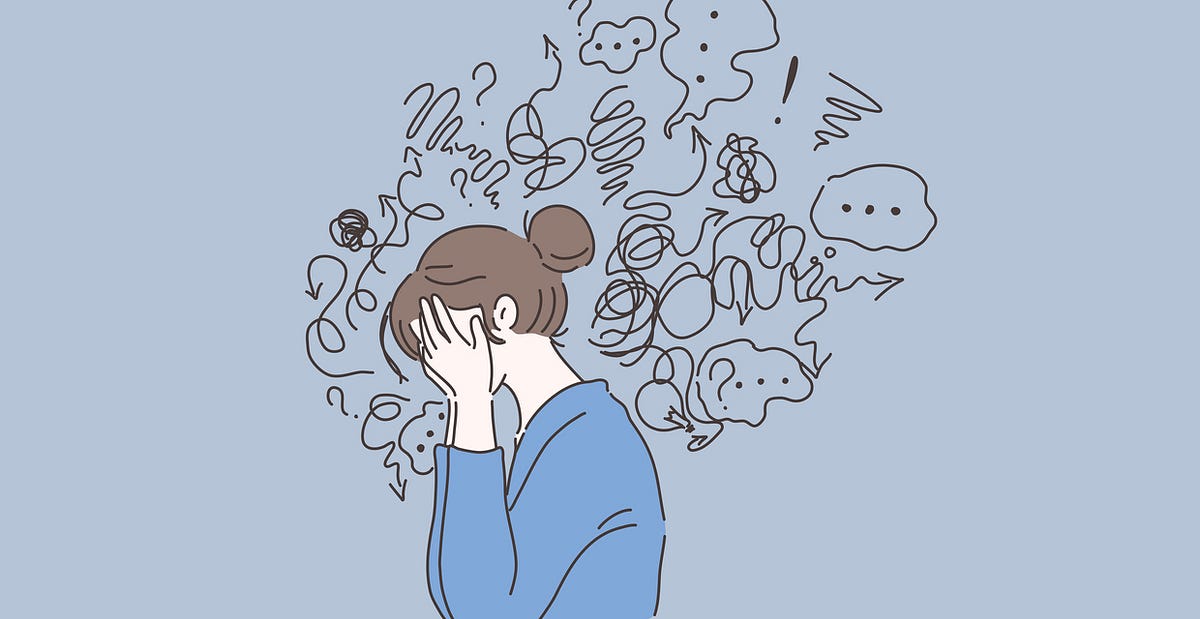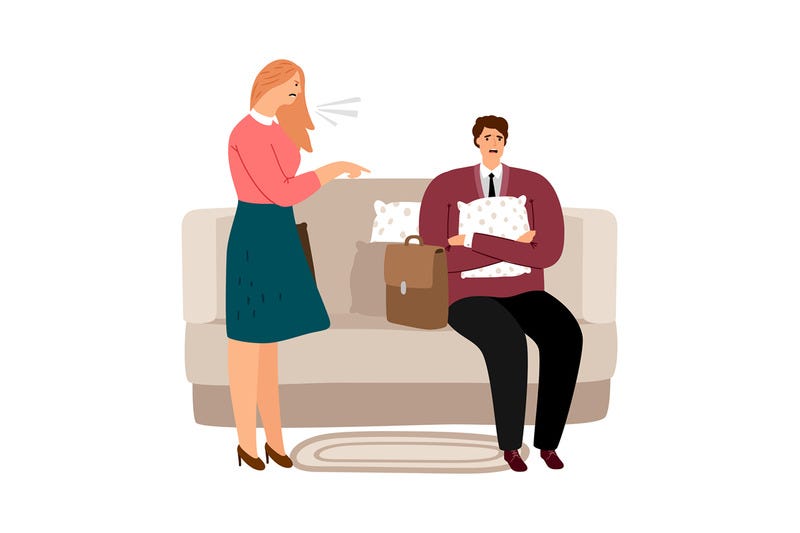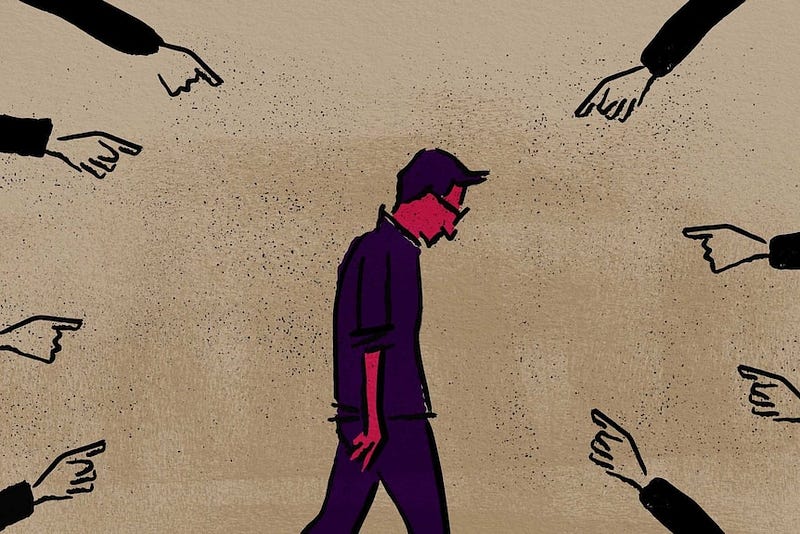Not All Scars Can Be Seen: A Brief Look into Emotional Abuse
In this article, we’re going to have a look at the types of emotional abuse, how emotional abuse can affect others, as well as some helpful…
In this article, we’re going to have a look at the types of emotional abuse, how emotional abuse can affect others, as well as some helpful advice and tips proven by professionals to help alleviate this issue.
TW: This article contains discussions of emotional abuse, domestic violence and suicide.
Emotional Abuse: Definition and Types
Emotional abuse is the action or an intention to control someone by using emotions like criticism, embarrassment, shame and blame. Applying these types of emotions on someone could hurt them badly and is really detrimental to their mental health.
Abuse through emotional manipulation can vary from individual experiences and they can be:
Jealousy: This is one of the most common forms of abuse which comes directly from the abuser’s personal insecurities. The abuser results in accusing the victim with unnecessary exaggeration and with ill-motiveness.
Bullying: Bullying is perhaps the most controversial of them all, faced by one in every four students aged 18–25 years old i.e. 22% of the students reported. This is a serious act of abusing someone, which has strict repercussions in most of the countries around the world.
The act of goading and blaming afterwards: This is typically done by abusers with a firm intention to tarnish someone’s image especially in the public eye, where the abuser knows how to push the victim’s buttons and upset them, but when trouble brews, the abuser pins the blame on the victim.
Ignoring and belittling: This is when the abuser decides to avoid the victim, giving them no place of acceptance. In this case, the abuser would try their very best to belittle the victim to make them feel down when they notice the victim around their vicinity. This is something hard for anyone out there to gulp which in turn can make them feel guilty about oneself.
Emotional blackmail: Some examples of emotional blackmail could include the abuser embarrassing the victim in public or privately, using the victims’ fears or personality against them, or exaggerating the victim’s flaws.
Gaslighting: Abusers use this technique by manipulating the truth to the victim, forcing the victim to doubt their own feelings, thoughts or sometimes even their own sanity. This is typically a covert form of emotional abuse, and usually remains unknown to the person(s) abused.
Isolation: This is when the abuser isolates and controls their victim, so that the victim does not have the freedom to go anywhere without the abuser’s permission or knowledge. The victim is thus usually isolated from friends or family.
Do take note that this is certainly not an exhaustive list of the types of emotional abuse, as emotionally abusive people usually use a range of techniques.
Signs of Emotional Abuse: How To Recognise Them
It has been found that most of the victims falling for this kind of abuse are not aware of the actual depth of the sufferings and humiliations they’re facing. They may be in a complete dilemma on what they’re facing especially if they have yet to experience this kind of abuse. In order to eradicate this issue, we must first be able to recognise the presence of emotional abuse in our lives, if we were to face it at any point in time. Identifying some aspects promptly at the start may prevent the situation from getting worse.
Firstly, the sense of feeling unimportant or having no worth in a conversation or in a relationship can be an important sign to consider. This indicates that the person — the abuser — has no respect whatsoever for the victim. He/she may get blocked or interrupted abruptly without caring about his/her opinions. Secondly, when a person gets accused and blamed for no apparent reason, and when the blaming is done only for the sake of making the other feel down, it should also be considered one of the major signs of emotional abuse.
Moreover, the abuser may have sharp mood swings and may act quite differently towards the victim depending on how that individual is actually feeling. This sort of behavioural change is quite dangerous as one moment the abuser might show their loving side, and the next, a ruthless angered side. Some people may also get affected by getting emotionally blackmailed through means of lying, cheating, brainwashing or psychological manipulation, which could force them to do something completely against will. Many a times, a situation stands such that the abuser nitpicks at very small things and decides to make a big fight out of it. The matter may sometimes go to a very great extent to make you feel bad, which can destroy the abused mentally.
Harmful Effects Caused by Emotional Abuse
Emotional abuse, like physical abuse, can have long-term effects on the brain and body. In fact, according to one study, severe emotional abuse can be as damaging as physical abuse and can eventually lead to depression and the development of a low self-esteem. The more it continues, the more the pain is prolonged, which in turn increases the severity level. Through fear and extreme levels of anxiety, a person may develop a range of mental complications, and if left untreated, may proliferate into a much more serious matter. Some people experience moodiness, aches and pains, higher difficulties in concentrating and muscle tension. These effects prolong as long as they are engaged in these intense situations, and can eventually start to develop into chronic issues such as fibromyalgia and chronic fatigue syndrome.
Generally, the abused would feel a mix of shame, hopelessness, fearfulness and confusion when dealing with these situations. While some face these, others on the other hand may turn to more harmful and self-destructive coping mechanisms such as suicidal tendencies, engaging in dangerous activities, or opting for psychedelics and other powerfully addictive drugs to the point of compulsion. In the worst case scenario, if the victim loses his/her ability to fight back, it would be debilitating for them. Thus, most victims have no strength to focus on life or work.
A Surge in Emotional Abuse due to Covid-19
Amidst this unexpected pandemic, households are getting affected by a flurry of mental abuse and many other stress factors. It was reported that over 30% of women across South — East Asian countries faced domestic violence. Emerging data shows an increase in calls to domestic violence helplines in many countries since the outbreak of COVID-19. Many people suggest that the cause of this intensifying violence stems from the fact that many men are losing jobs because of the pandemic, leading them to channel their frustrations over their loved ones, especially women. Other reasons include forced proximity due to lockdowns, thus providing increased opportunities for abusers without anyone from outside the household to stop the abuse.
In Malaysia, a total of 2,287 cases of domestic violence and 4,349 cases of child abuse were reported in 2020, of which a substantial number were due to emotional abuse. In the first 6 months of 2021 alone, out of 142 cases of child abuse in Negeri Sembilan, 3% were due to emotional abuse. These astounding numbers lay proof of the case that emotional abuse remains a prevalent, ongoing issue that has yet to be tackled effectively.
Act Out Right: Helpful Measures to Solve the Issue
Acting out right in this situation would be life changing. By implementing some strategies, survivors are able to break free from the cycle of emotional abuse. This could save lives as well as refilling hope to start again from scratch. One of the strategies that could be helpful is to communicate. Communication is essential in this type of situation. Communicating or reaching out to friends and families would be highly recommended. Having a support system could give the survivor strength to tackle the problems ahead. Isolating instead could only make it worse. Reaching out to support helplines could also prove effective. For those in Malaysia, here is a list of hotlines that you may contact if you are facing emotional abuse.
Another way could be seeking professional support from lawyers. It would serve as a wise decision and if executed effectively, one can settle their case with ease and efficiency. Setting boundaries and knowing about the legal rights violation laws in one’s country could help too. Knowing one’s boundaries would help them to take a stand and act up to prevent the state of the situation from worsening.
Yet, it must be noted that other parties aside from the survivor are in a much more effective position to curb the perpetuation of emotional abuse. For those closest to the survivor, the case could be alleviated sooner if their friends and families take charge of the situation and file a complaint to the local police against the abuser. The authorities can then take the necessary actions to put a stop to it. Moreover, many activist groups or communities can execute rallies, campaigns etc. to stand against this act and also warn people on how to identify signs of emotional abuse and how to take care of themselves.
The government should impose strict laws and legislations all across the country to criminalise emotional abuse. In Malaysia, there have been suggestions put forward to expand the Domestic Violence Act 1994 to include psychological or emotional abuse, thus hopes soar high that such an amendment would help ensure that survivors are able to gain rightful justice through the law.
Insights & Opinions from the Writer
Having put up the points above, I would like to conclude that, if we have a stern belief within and make it an effort to raise awareness concerning emotional abuse as well as educate communities about prevention tips and helpful measures, a lot of lives would be saved from the sufferings of emotional abuse. Aside from the measures listed above, one should also develop compassion within themselves and for others, thus preventing one from ever going down this path of abusing their loved ones around them. Finally, through the idea of spreading love and kindness as well as helping people in any way possible, we can hopefully create a better world of peace and tranquility.
Written by Sakib Rahman. Edited by Siow Chien Wen.





